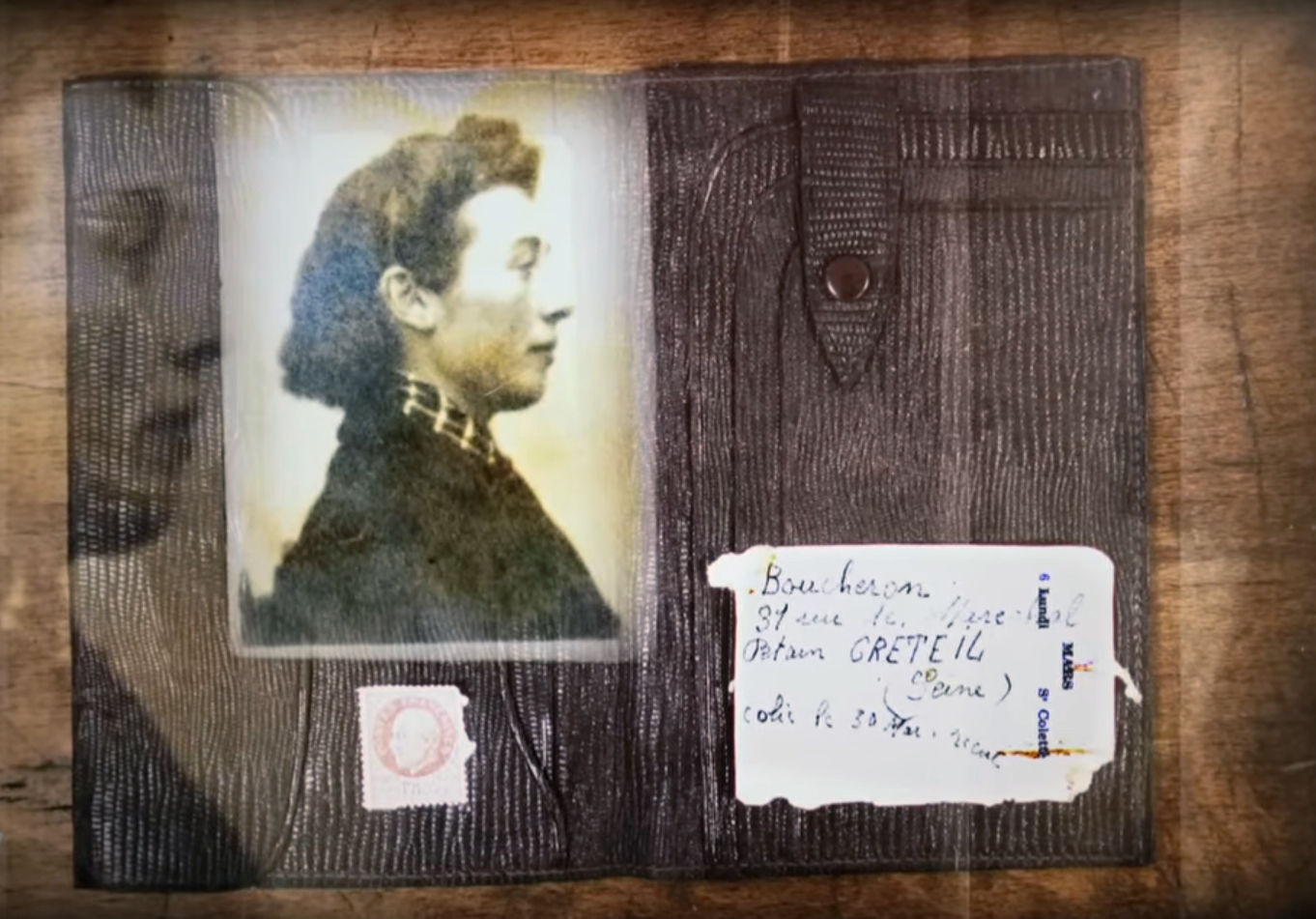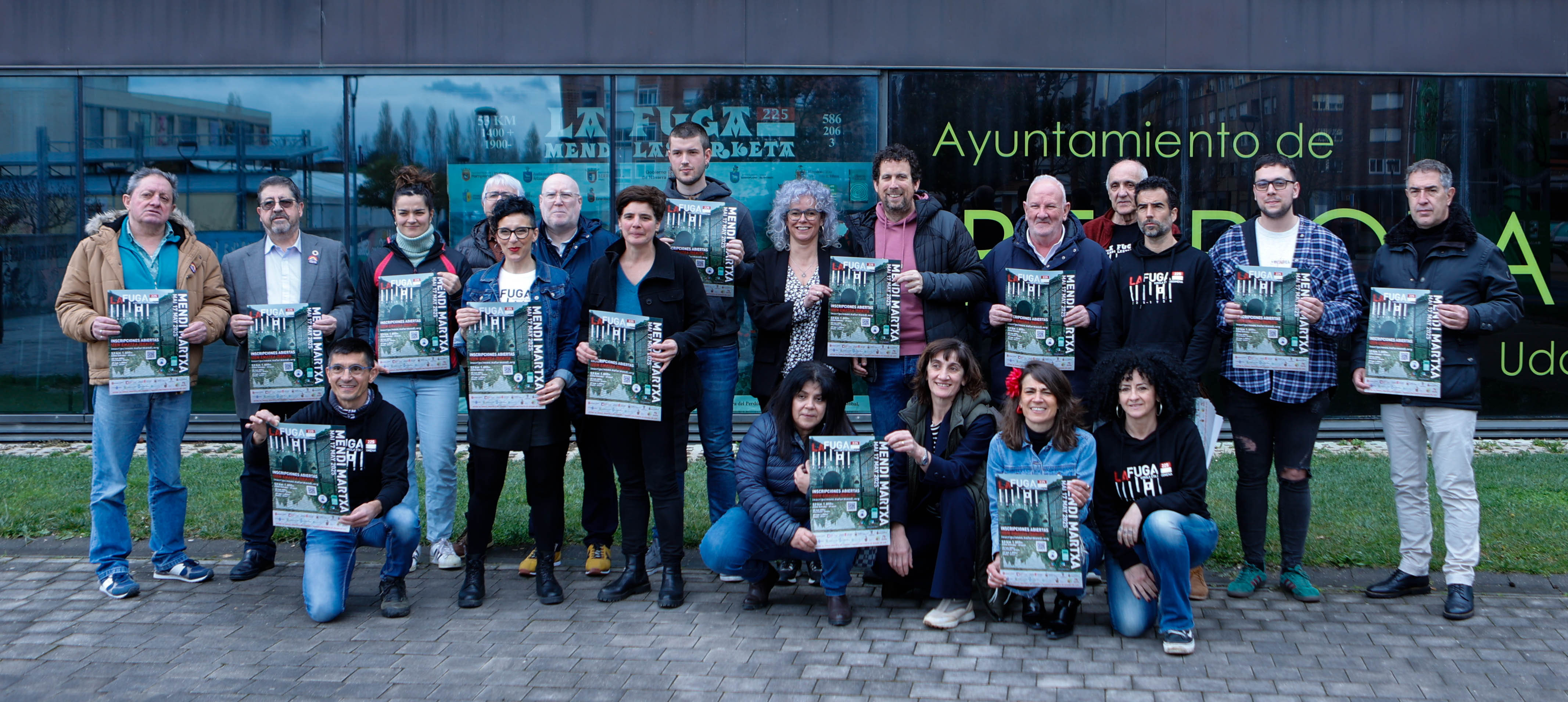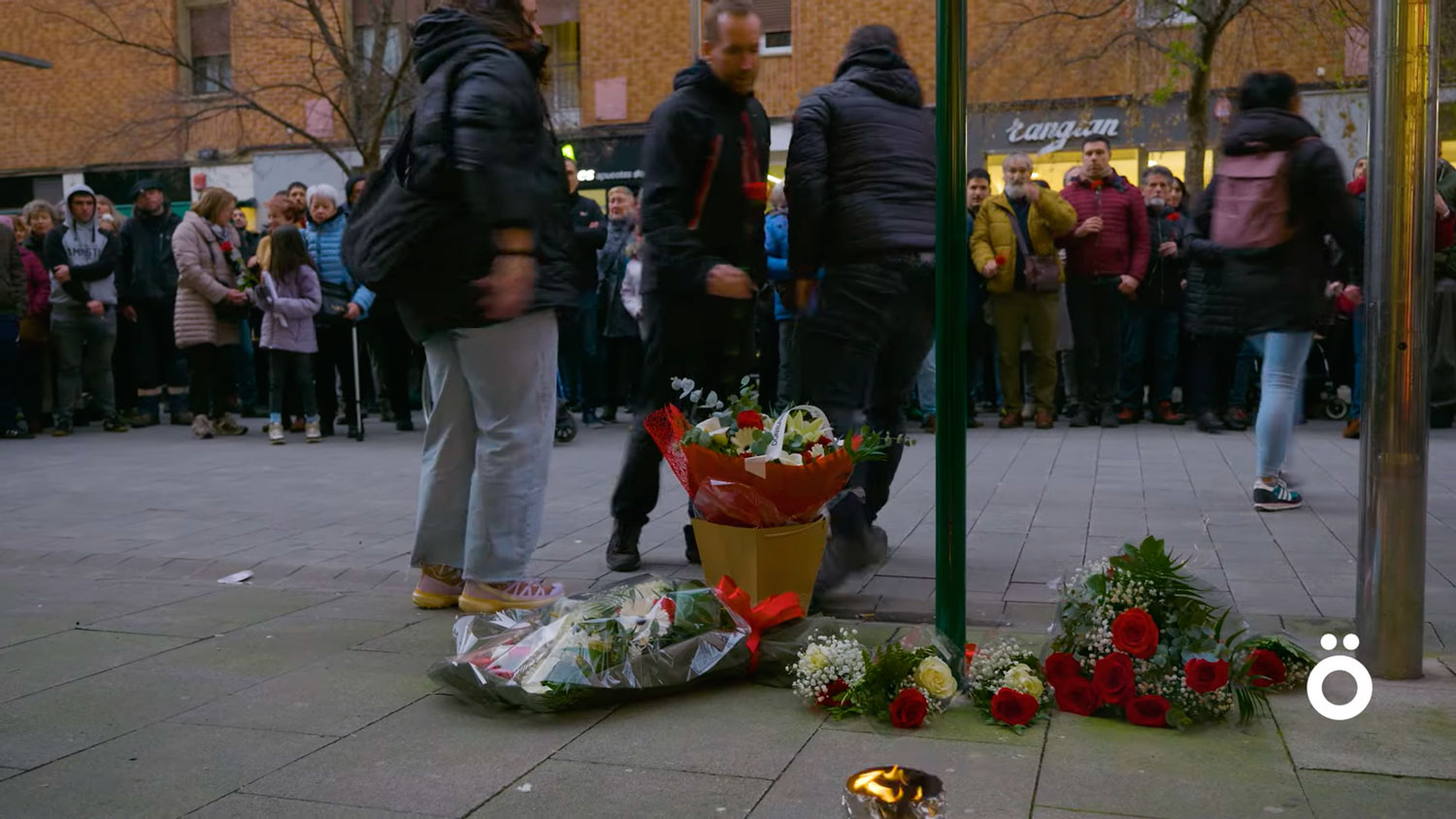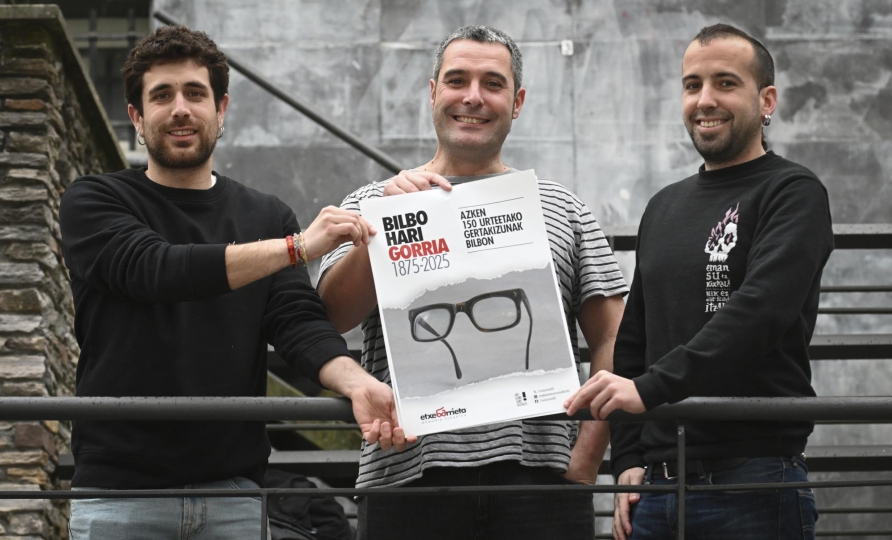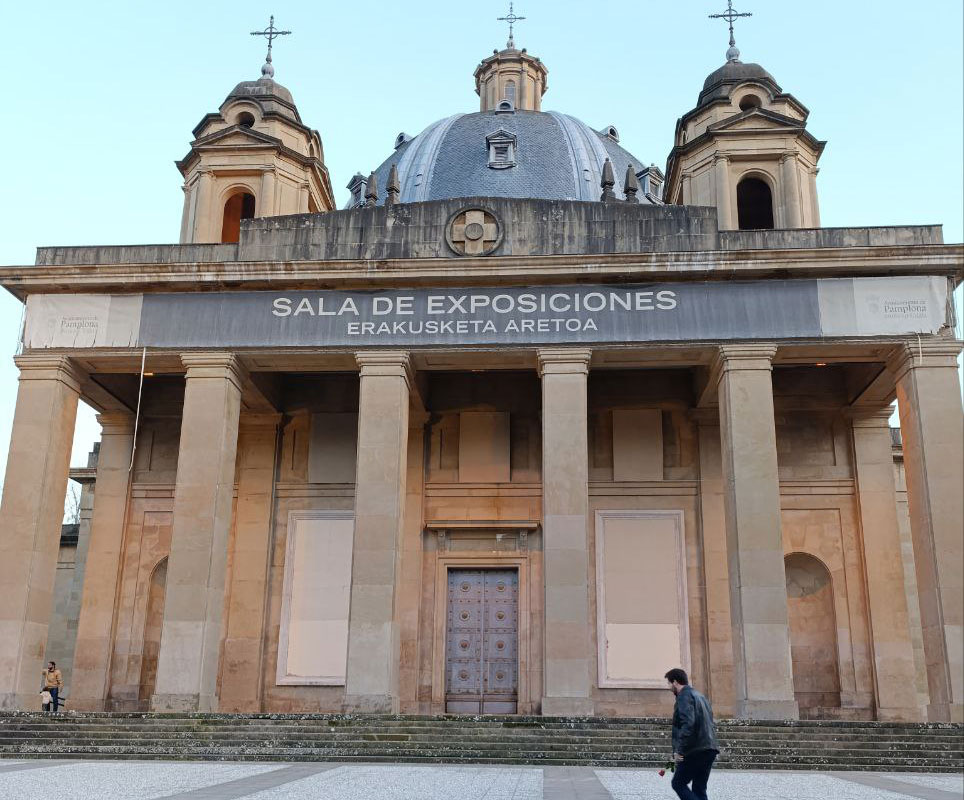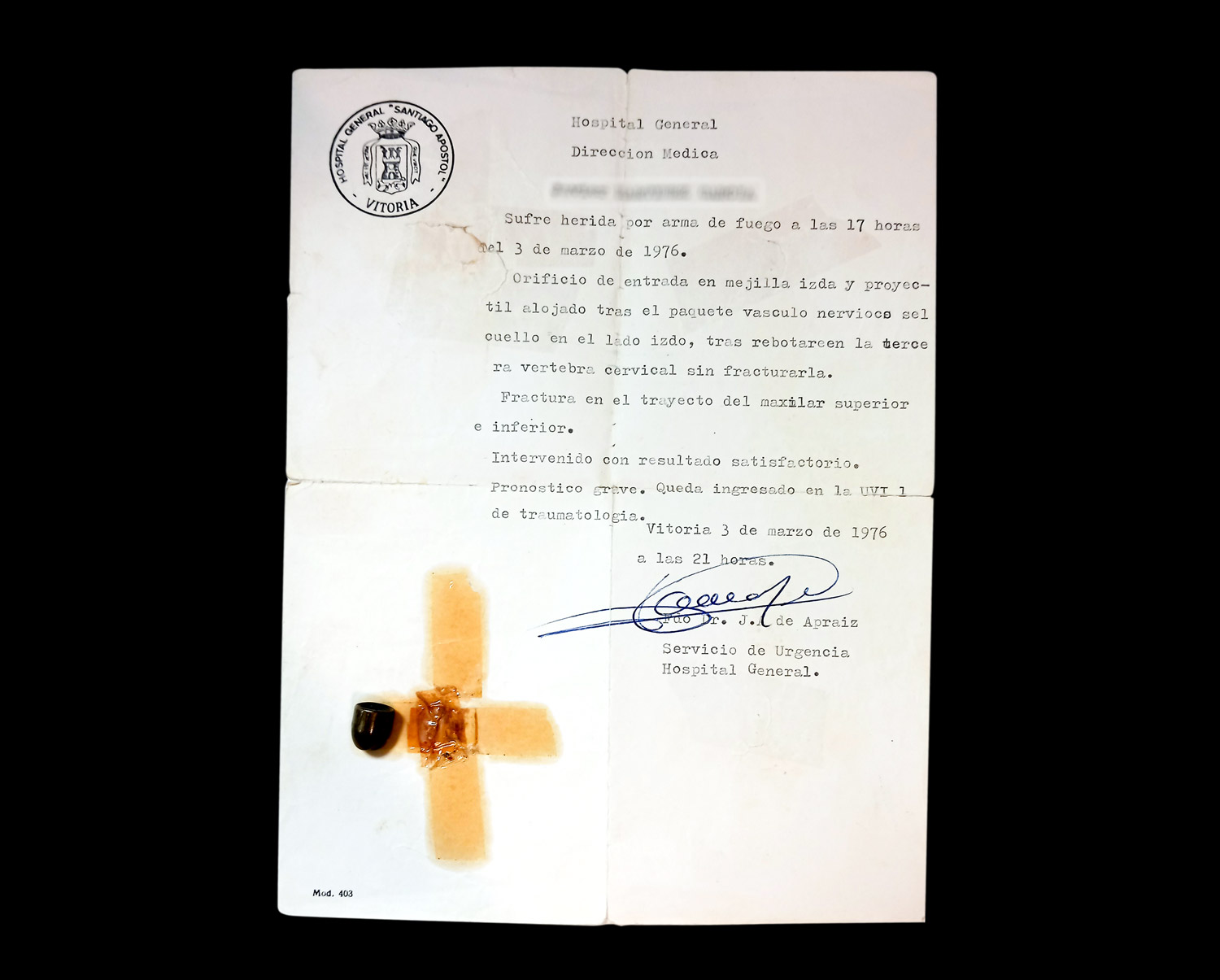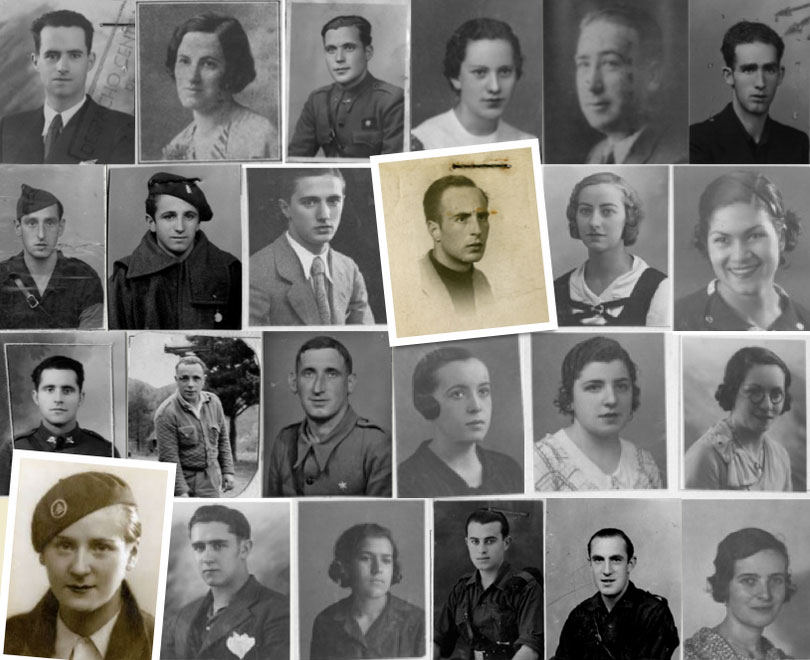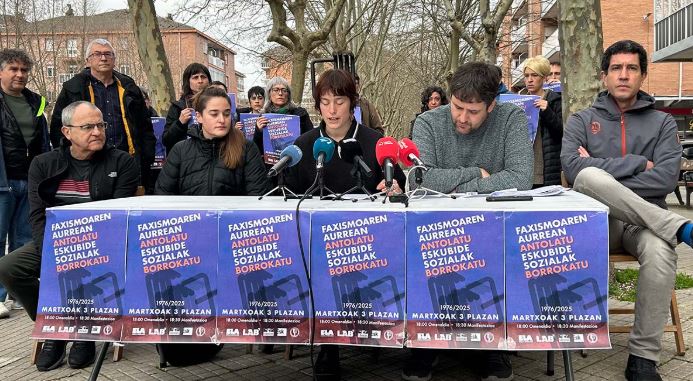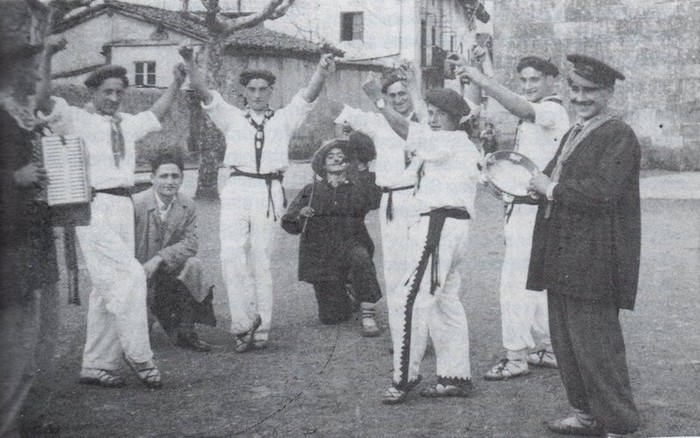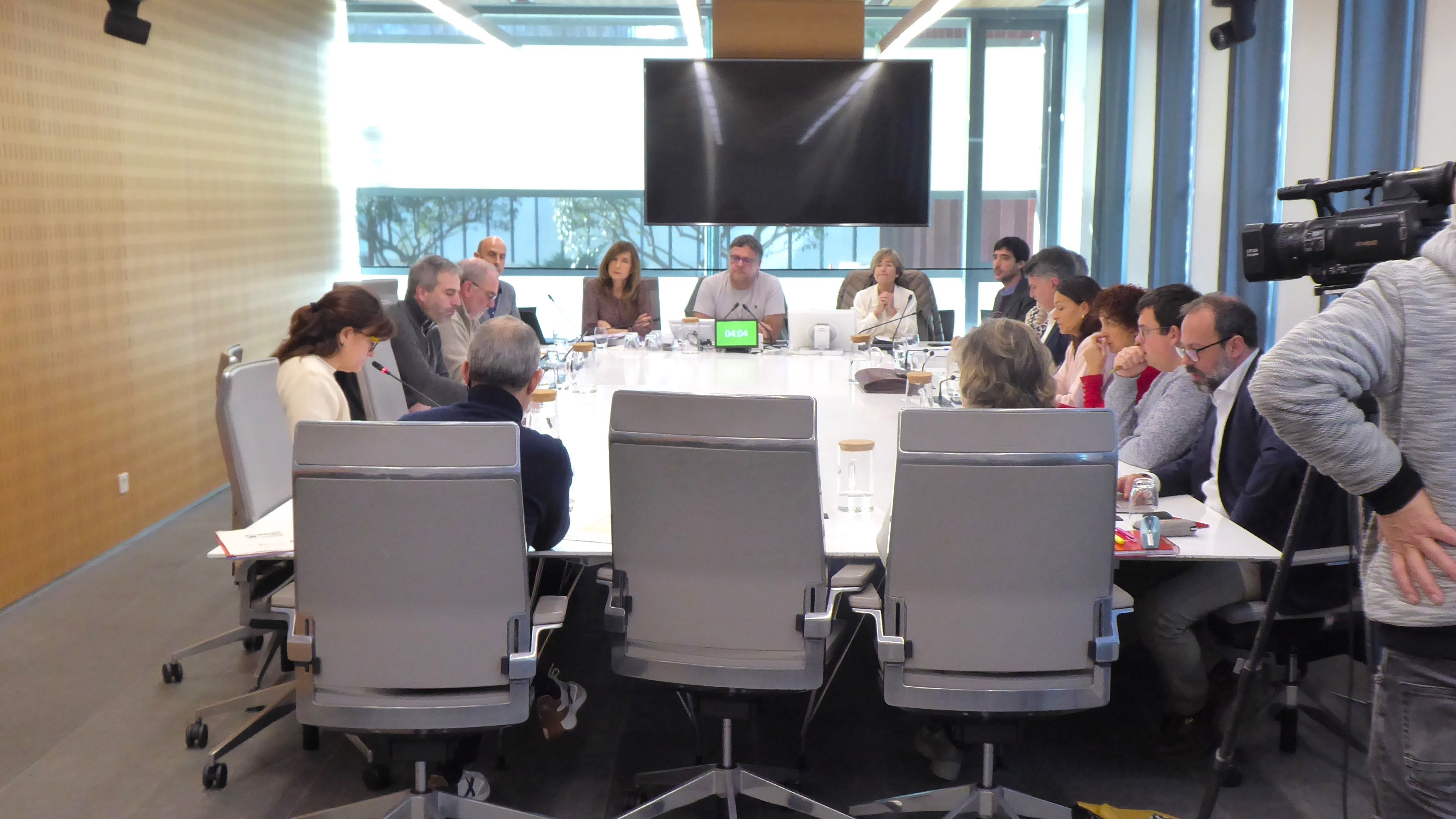Tribute to the members of the LGTBI+ collective suppressed by Franco in Vidángoz
- In the annual tribute on the Igari-Bidankoze road, they will recall in particular those detained and forced to enslave for their sexual identity. The event will take place on June 17.

In the annual tribute to the Franco slaves in Bidakonz, this year the members of the LGTBI+ group will play a special role. During the 1936 war and the long post-war period, many people were detained and repressed from their sexual identity.
Many have just worked as slaves and will remember it on Saturday, June 17 at the height of Igariko, which joins the valleys of Roncal and Salazar, in the act that the Camino de la Memoria group performs. Among other activities, there will be a musical performance and a self-managed meal.

This road between Igari and Vidángoz was built by the slaves of Franco between 1939 and 1941. According to historians, over 2,000 people worked on the road in very precarious conditions. On the top of Igari you can see a reproduction of the barracks currently used by the slaves.
Researchers Fernando Mendiola and Edurne Beaumont analyzed in depth the case of Igari, in the book Slaves of Franco in the Pyrenees (Francoist Slaves), published in 2006 with Txalaparta, in which they claim that many prisoners, "it is impossible to know how many were", decided to escape and that some of them were killed by guards during the flight.
In the workers' battalions were the political dissidents and those that the regime considered "dangerous", among which, of course, there were people who did not conform to the patriarchal model of national-catholic relationship.
Agricultural colony of Tefia
So much was the social cleansing intended by Franco, creating spaces of concentration for various groups.
As the Steilas union pointed out, many LGTBI+ members were forced to perform forced labour in the Tefia area of Fuerteventura, a kind of rural colony that actually became a macabre prison.

Created on the basis of the Spanish law Vagos y Maleantes ("Alperrak eta gaiztaginak") around 1954, this camp of Tefia was in the middle of a desert, an old aerodrome, and was led during the first years by an old carmelite, supposedly vitorian, with hard hands, beatings, hunger, humiliation and sexual repression.
It was closed in 1966 and currently has a youth hostel.
Kirola eta oroimena uztartuko dituzte, bigarrenez, mendi-martxa baten bitartez. Ez da lehiakorra izanen, helburua beste bat delako. La Fuga izeneko mendi martxak 1938ko sarraskia gogorarazi nahi du. Ezkabako gotorlekuan hasi eta Urepelen amaituko da. Maiatzaren 17an eginen dute.
Fusilamenduak, elektrodoak eta poltsa, hobi komunak, kolpismoa, jazarpena, drogak, Galindo, umiliazioak, gerra zikina, Intxaurrondo, narkotrafikoa, estoldak, hizkuntza inposaketa, Altsasu, inpunitatea… Guardia Zibilaren lorratza iluna da Euskal Herrian, baita Espainiako... [+]
Gogora Institutuak 1936ko Gerrako biktimen inguruan egindako txostenean "erreketeak, falangistak, Kondor Legioko hegazkinlari alemaniar naziak eta faxista italiarrak" ageri direla salatu du Intxorta 1937 elkarteak, eta izen horiek kentzeko eskatu du. Maria Jesus San Jose... [+]
Familiak eskatu bezala, aurten Angel oroitzeko ekitaldia lore-eskaintza txiki bat izan da, Martin Azpilikueta kalean oroitarazten duen plakaren ondoan. 21 urte geroago, Angel jada biktima-estatus ofizialarekin gogoratzen dute.
Bilbo Hari Gorria dinamikarekin ekarriko ditu gurera azken 150 urteetako Bilboko efemerideak Etxebarrieta Memoria Elkarteak. Iker Egiraun kideak xehetasunak eskaini dizkigu.
33/2013 Foru Legeari Xedapen gehigarri bat gehitu zaio datozen aldaketak gauzatu ahal izateko, eta horren bidez ahalbidetzen da “erregimen frankistaren garaipenaren gorespenezkoak gertatzen diren zati sinbolikoak erretiratzea eta kupularen barnealdeko margolanak... [+]
1976ko martxoaren 3an, Gasteizen, Poliziak ehunka tiro egin zituen asanbladan bildutako jendetzaren aurka, zabalduz eta erradikalizatuz zihoan greba mugimendua odoletan ito nahian. Bost langile hil zituzten, baina “egun hartan hildakoak gehiago ez izatea ia miraria... [+]
Memoria eta Bizikidetzako, Kanpo Ekintzako eta Euskarako Departamentuko Memoriaren Nafarroako Institutuak "Maistrak eta maisu errepresaliatuak Nafarroan (1936-1976)" hezkuntza-webgunea aurkeztu du.








